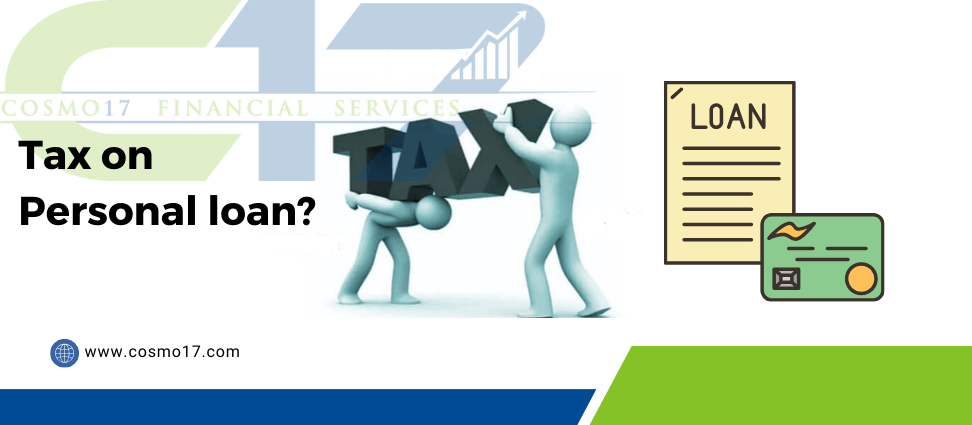Personal loans are a popular option for many people who need additional funds to meet their personal or financial goals. Be it for home renovation, education, business or any other purpose, personal loans can provide quick and easy access to funds without the need for collateral.
However, a question that often arises while taking a personal loan is whether the interest payment is tax deductible or not. After all, interest is an additional cost that adds up over time and can impact your budget and savings.
In this blog post, we will answer this question and explain the situations where you can claim tax benefits on personal loan interest payments. We also offer some tips on how to optimize your personal loan payments and save money on interest.
Are Personal loan interest payments tax deductible?
The short answer is no. Interest payments on personal loans are not tax deductible. However, there are some exceptions. For example, interest paid on a personal loan used to pay business expenses or qualified educational expenses may be deducted from your annual taxes, reducing your taxable income.
The main factor in determining whether you can claim these benefits or not is the intended use of the loan amount. You can claim these benefits as long as you can provide proof that the funds were used for the specific purpose.
Let’s look at some situations where you can claim tax benefits on interest payments on personal loans.
When can you claim tax benefits on interest payments of Personal loan?
home renovation
If you take a personal loan to renovate or repair your home, you are eligible for tax deduction under Section 24(B) of the Income Tax Act. You can claim deduction up to Rs. Rs 30,000 per year in interest paid on personal loan.
However, this deduction is only applicable if renovations or repairs are done to a self-contained property. If the property is given on rent, you cannot claim this deduction.
Buying or Building a Home
If you take a loan to buy or build a house, you can claim a deduction on the interest paid on that loan. If the house is used for self-occupancy, you can claim interest deduction up to Rs 2,00,000. If you rent it out, the entire interest amount is eligible for tax return.
However, this deduction is applicable only if the loan is taken from a specific financial institution such as a bank or housing finance company. If you take a personal loan from an individual or a non-banking finance company (NBFC), you cannot claim this deduction.
Education expenditures
If you take a personal loan for your or your spouse’s or children’s education, you can claim tax deduction under Section 80E. This deduction can be claimed for a maximum period of eight years or till the loan is repaid, whichever is earlier.
However, this deduction is applicable only if the education is for higher studies in India or abroad. Higher education includes any education pursued after passing the Senior Secondary Examination or its equivalent from a school, board or university recognized by the Central Government or a State Government or a local authority or any other authority recognized by the Central Government or a State Government. A local curriculum is also included. Right to do so.
Starting a Business
If you take a personal loan to start a business or invest in a business, you can claim the interest paid as business expense under Section 37 of the Income Tax Act. You can deduct the interest paid on such personal loans as business expense from your business income.
However, this deduction is applicable only if you have a business or profession and the personal loan money is used for your business or profession. You cannot claim this deduction if you use the personal loan for any other purpose.
How to Optimize Your Personal Loan Repayment and Save Money on Interest?
While there are some scenarios where you can claim tax benefits on personal loan interest payments, they are not very common and have certain conditions attached to them. Therefore, it is better to focus on optimizing your personal loan repayment and saving money on interest rather than relying on tax deductions.
Here are some tips that can help you do that:
- Compare different lenders and choose the one that offers the lowest interest rate and fees.
- Negotiate with your lender for better terms and conditions such as lower interest rate, longer tenure, flexible repayment options, etc.
- Choose a shorter tenure if possible as it will reduce the total interest payable.
- Make extra payments whenever possible to reduce the principal amount and save on interest.
- Avoid missing or delaying your EMIs as it will attract penalties and charges and increase your interest cost.
- Refinance your personal loan if you find a better deal from another lender.
Conclusion
Personal loans are a convenient way to meet your personal or financial needs, but they come at a cost. Interest payments on personal loans are not tax deductible, except in some specific cases. Therefore, you should plan your personal loan repayment carefully and try to save money on interest as much as possible.




